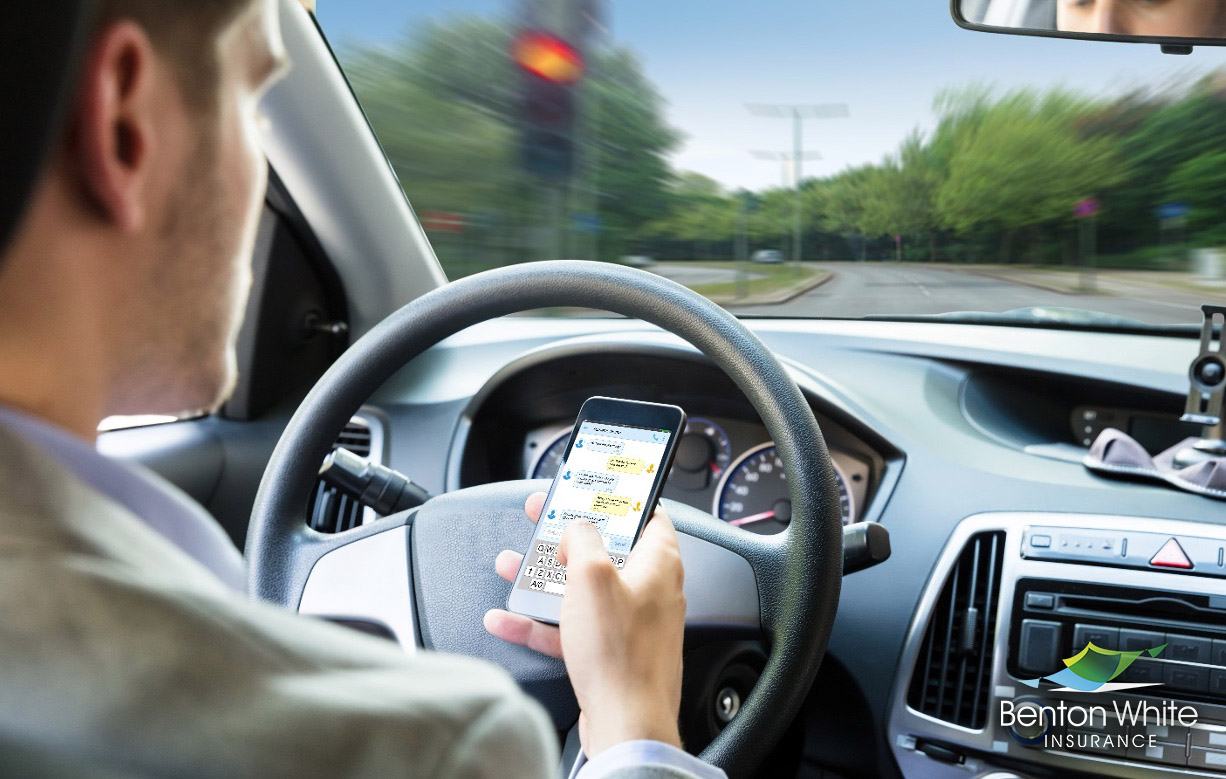I have been promoting HANDS-FREE mobile phone usage for several years. I see first-hand with auto insurance claims how risky it can be not to give your full attention to driving a vehicle. We’re seeing more Distracted Driving claims than ever before in our agency.
When the Hands-Free laws began to surface, there were complaints, but new research finds that hands-free cellphone laws are associated with fewer driver deaths. Laws in 21 states allowing only hands-free cell phone use by drivers have prevented about 140 driver deaths and 13,900 driver injuries annually in the U.S.
The same research found that calling-only, texting-only, texting plus phone-manipulating and calling and texting bans are not linked to fewer driving deaths.
The effectiveness of hands-free laws over others could be due to greater compliance as hands-free cellphone laws clearly send the message that cellphones are not to be handled at all while driving. In addition, drivers may be more likely to believe that enforcement is possible when the laws govern cellphone use broadly, according to the study, Bans on Cellphone Use While Driving and Traffic Fatalities in the United States published in Epidemiology. The study was conducted by researchers at the Center for Injury Research and Policy at Nationwide Children’s Hospital in Columbus, Ohio.
Traffic crashes are a leading cause of death in the United States relative to other high-income countries and drivers’ cellphone use is a common traffic safety hazard. Cellphone use may involve manual distraction (hands off the steering wheel), visual distraction (eyes off the road), and cognitive distraction (mind off driving) and includes activities such as calling, texting, looking at apps and various other uses.

To combat the risks of using a cellphone while driving, states have implemented a variety of laws. As of June 2021, 21 of 50 states have implemented hands-free cellphone laws (that is, comprehensive handheld cellphone bans) that prohibit almost all handheld cellphone use including texting, calling and using apps. In addition, three states and the District of Columbia banned calling and texting, 24 states banned texting, and two states had no prohibition on cellphone use for drivers of any age.
The researchers looked at drivers, non-drivers (passengers, pedestrians, bicyclists, motorcyclists), and total deaths involved in passenger vehicle crashes from 1999 through 2016 in 50 states, along with the presence and characteristics of cellphone use laws.
“We’re not suggesting states take people’s phones away while driving or tell them not to use their phone while driving,” said Motao (Matt) Zhu, MD, MS, PhD, lead author of the study and principal investigator in the Center for Injury Research and Policy at Nationwide Children’s. “We’re recommending that, if you need to use your phone while driving, you do so hands-free. Further, we recommend states implement hands-free cellphone laws to encourage this behavior change.”
Zhu said the research demonstrates that hands-free laws “save lives and reduce the societal costs associated with distracted driving,” noting that hands-free laws have prevented about 140 driver deaths and 13,900 driver injuries annually.
Distracted driving-related crashes are a major burden on emergency medical and trauma systems and result in significant medical expenditures for treatment and rehabilitation.
Statistics are begin published that Hands-Free and Don’t TEXT While Driving laws/restrictions are working. If you do have that unfortunate accident or other claim, we are here to help! Reach out to us by TEXT or PHONE at 615.377.1212. Or EMAIL us at info@BentonWhite.com.
Here comes football and hockey season. We, at Benton White Insurance, hope you are gearing up for a wonderful fall season. Many are surely ready for it!
Please stay safe in your corner of the world!
Data for this study were obtained from Fatality Analysis Reporting System by the National Highway Traffic Safety Administration, the Insurance Institute for Highway Safety and LexisNexis.
ource: Center for Injury Research and Policy of the Abigail Wexner Research Institute at Nationwide Children’s Hospital





